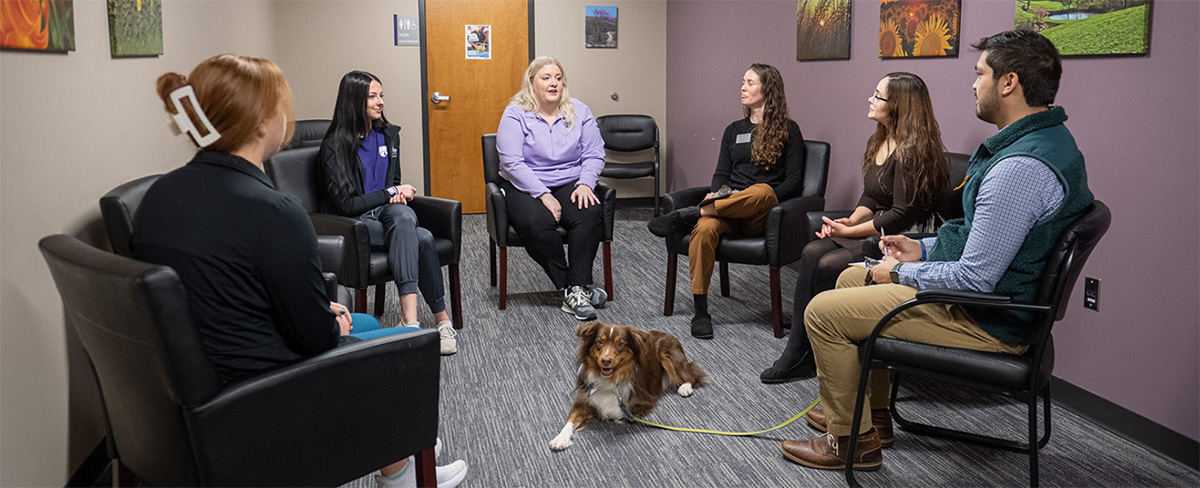
Groups at CAPS
CAPS offers two different types of groups.
- Interpersonal process groups focus on improving relationships. They provide a safe and supportive environment for members to talk and learn about how they interact with one another and the group as a whole. Process groups also help members explore new ways of behaving in relationships. They do not have a specific theme or topic for discussion. Instead, they allow members to talk about difficult areas of their lives and reflect aloud on how their relationship patterns are connected to those difficulties.
- Skills groups are more structured and include instruction from a group facilitator to help students develop skills. There is a strong teaching component in these types of groups, often focused on a particular topic. However, discussions and vulnerability are encouraged. It is important to note that members must practice between sessions to achieve the full benefits of skills groups.
Interpersonal Process Groups Offered at CAPS:
Skills Groups Offered at CAPS:
Support Group Offered at CAPS:
Therapy 101
Please contact CAPS (785-532-6927) if you have questions or to schedule an appointment to see if group therapy is a good fit for you.